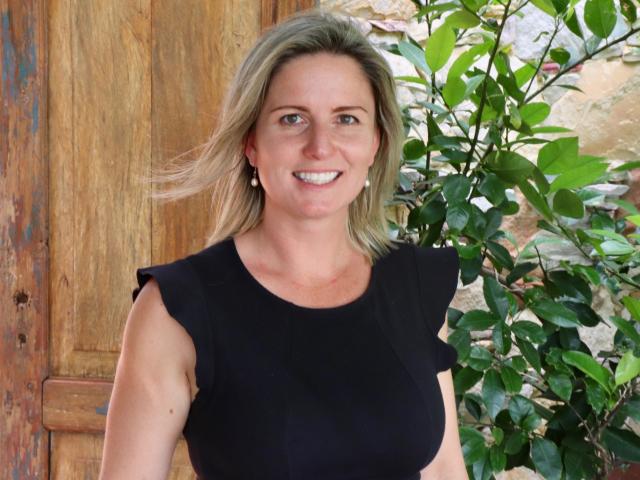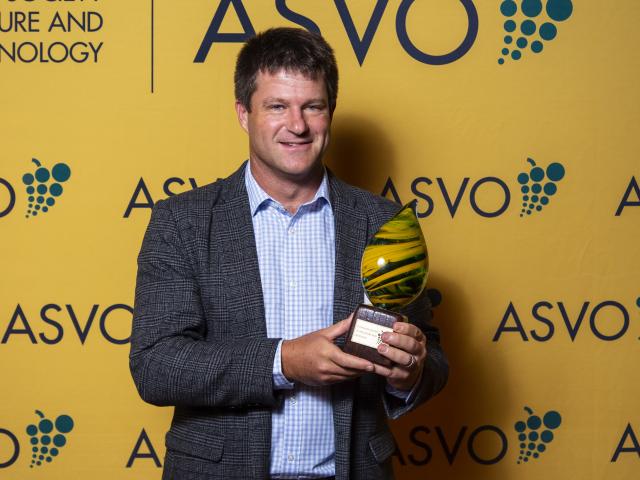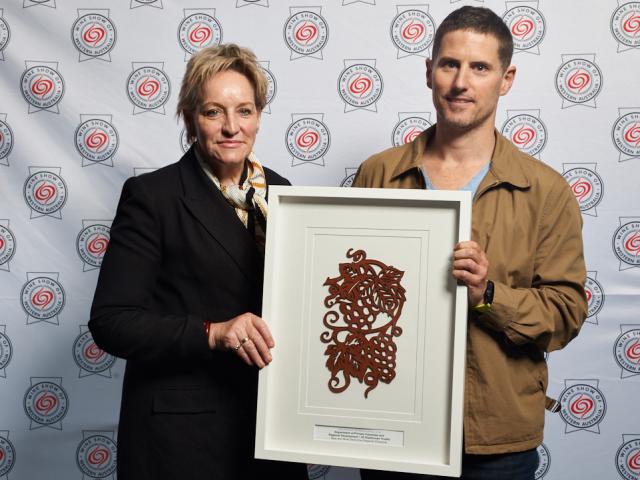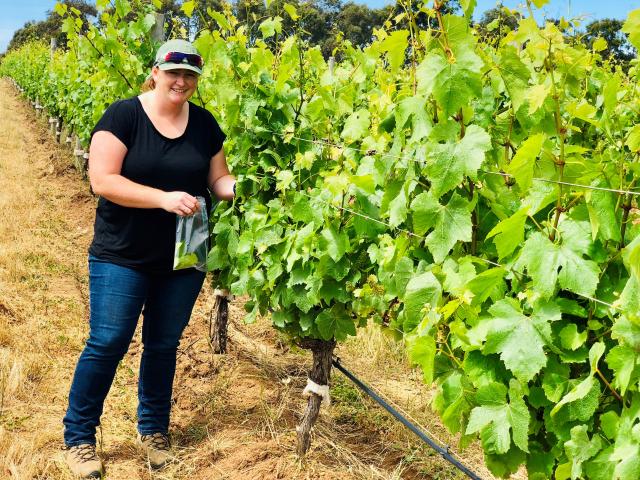Study shows collaboration key for logistic efficiencies

Collaborative business models are known for their role in helping small-scale producers reduce risk, share a range of costs and build market presence. Previously, in the March edition of the Wine Industry Newsletter, we highlighted a Wine Australia funded, Curtin University led research project on collaborative business models in the WA wine industry.
The results are now complete and the findings offer insights into potential pathways and strategies to engage in collaboration, specifically around sharing transportation services among multiple wineries for the shipping of wine to both domestic and international markets. The recommendations flowing from the findings include:
- Negotiation with transportation and logistics providers on behalf of collaborative group members for better pricing of the transportation and distribution of wine to individual consumers as opposed to intermediaries (e.g. distributor).
- Consolidation of shipments from a single collection point for a given region so that economies of scale could be achieved on behalf of the collaborative group.
- Establishing a preferred transportation provider for export shipments on behalf of a collaborative group so that buyers in the targeted export country could benefit from competitive pricing due to economies of scale—which could drive higher demand of wine from collaborative group members.
- Development of a mobile phone application or web site to ensure shipping loads were at optimum capacity—which in turn would encourage economies of scale for the collaborative group.
Since completion of the study, there have been exciting developments in the use of collaboration amongst wine producers in the transportation of wine. For example, one of the transportation and logistics providers interviewed for the project has indicated that they are offering collaborative solutions to wine customers in South Australia, and are investigating these services in New South Wales and Victoria. There has been expressed interest in serving the Western Australia market if demand is sufficient.
The results do suggest cost savings of collaboration between wine producers in the transportation of wine to end consumers, particularly in international markets. Next steps will be to explore further options for WA producers in order to take advantage of economies of scale and the opening up of expanded market reach at favourable price points in the transportation of wine to end destinations.
A full copy of the report is available.
Wine Australia Incubator Initiative – Gingin Chardonnay and Grapevine leafroll viruses
The most widely planted clone of Chardonnay in Western Australia (WA) is anecdotally thought to be the Gingin clone. This clone produces some of WA’s highest quality Chardonnay, despite the characteristic poor fruit set, millerandage and low yields. It is thought by many growers that these attributes are due to an interaction with one or more grapevine viruses, in particular Grapevine leafroll virus 1 (GLRV1).
Department of Primary Industry and Regional Development (DPIRD) Researcher Monica Kehoe, Brenda Coutts and Richard Fennessy were awarded an Incubator Project earlier this year from Wine Australia. The project will try to answer the question of whether viral infection of the Gingin Chardonnay clone can influence the vine phenotype, performance and wine quality.
Virus infection is not usually thought to be a good thing, but in this instance, it may be possible that it is contributing to the sought-after unique nature of high quality wines, particularly Western Australian Chardonnay. Understanding whether GLRV1 and/or other viruses are consistently present in Gingin clones, and how they affect vines and resulting wines will begin to answer many questions and provide a basis for further research into this phenomenon. There is not currently any record of such a study on a white variety. Most other studies looking at the effect of virus infection on vines report that the virus is detrimental to the vine, with decreased yields being one of the major problems.
There has been little research on the effect of virus infection on the quality of the wine produced from virus infected vines. There are few examples in the literature, and most focus on red varieties, which will often display more obvious symptoms of infection such as reddening and red blotches.
This small project will provide the first real evidence as to whether or not virus infection has any beneficial impact on the final wine produced, particularly with the Gingin Chardonnay clone. We expect to provoke valuable discussion on disease management practices, particularly if virus infection is found to be favourable to the wine quality in the Gingin Chardonnay clone. Purposefully maintaining a level of infection in a vineyard would require stringent management of vines and vectors to prevent spread to other blocks that may not be similarly affected.
Pest and disease seminar series recap
In October DPIRD hosted a seminar series on pest and diseases in the Swan Valley, Margaret River and Mt Barker regions. Pest and disease management, sustainable viticulture and chemical resistance are key priority areas identified by the WA wine industry. The seminars were designed to provide a broad range of information to growers and students on key pests and diseases that impact production in WA.
Professor Wayne Wilcox from Cornell University (USA) was invited to WA to present on his many years of experience on the management and biology of the grapevine diseases; powdery mildew, botrytis and sour rot. Combined, these fungal diseases cost Australian viticulture $128 million in both production losses and costs associated with their control.
Prof Wilcox also presented on his experience on the development of fungicide resistance within vineyard scenarios for different classes of chemical actives and the different pathogens. Continuing on the resistance theme, Andrew Taylor (DPIRD) highlighted the current situation of resistance within Australian populations of botrytis, powdery and downy mildew.
Dr Bob Emmett from RWE Horticultural Pathology Research in Mildura presented integrated pest and disease management information on a number of viticulture related issues with regional focus. These included trunk disease biology and management, mealybugs, light brown apple moth, birds and beneficial insects.
At both the Margaret River and Mt Barker seminars, DPIRD Senior Entomologist Stewart Learmonth presented the most recent information surrounding his many years of working to minimise the impact of garden weevil on viticulture in those regions.
Despite the challenge of covering a large amount of material in a relatively short period of time the feedback from the seminar series was overall positive. Most attendees indicated they picked up new information on the management of pest and diseases that they could implement within their own vineyards.
In total, 97 attendees, ranging from students to industry representatives with many years of experience, participated in the Swan Valley, Margaret River and Mt Barker seminars. The seminars were funded via the Wine Australia Regional Program and supported by Wines of Western Australia. The Swan Valley seminar was also supported by the Grape Growers Association of WA.
If you would like to view the PowerPoint presentations given at the various seminars, they are available on the Wines of WA website under the WA Regional program 2018-19 header.
Wine Industry to lead new International Wine Tourism Strategy

WoWA has been the driving force behind the three-year strategy which seeks to increase international visitation to all of the state’s wine regions, increase visit lengths and spending in the region.
WoWA is supported by DPIRD, Tourism Western Australia, and regional wine associations in leading the implementation of the strategy.
The strategy involves four key planks – inter-region collaboration with key sector partners, wine tourism product development, integrated communications and promotions, and regional partnerships and support programs.
WoWA is already working on the introduction of latest technology digital platforms created specifically for wine producers and regions, and assist consumers improve their navigation around wine regions with a full suite of interactive content. This technology, developed by Scoop Digital in Perth, is groundbreaking in its ability to integrate complex information and disseminate it to third party sites as well as providing smart interactive templates for application to wineries and wine regions. All content is being translated into Mandarin. The first parts of this project are scheduled for completion in November, with all the state’s wineries listed in the directory complete with Chinese translations.
Examples can be seen on the Scoop Wines website.
Another major component of the strategy will be to audit gaps and shortcomings in the regional tourism offerings with workshops, and information seminars planned to address these gaps and support cellar doors to build capacity.
A large part of the success of the strategy will rely on the fostering on inter-regional collaboration and alliances to cross-promote, extend opportunities and avoid duplication of resources. To this end, a Wine Tourism Alliance has been established, consisting of representatives from the wine industry, Tourism WA, DPIRD and regional tourism organisations. The Alliance will provide input to the strategy and ensure that interests of stakeholders are represented and information is dispersed to relevant networks.
The Wine Tourism Strategy is critically aligned with the existing Western Australian Wine Industry Strategic Plan 2014–2024 that aims to double wine exports to $100 million by 2021.
WoWA CEO Larry Jorgensen said, “This is the first time that a strategy is in place which is the result of a collaboration with state and national agencies, and wine, food and tourism sectors.
This will provide a legacy for future collaboration long after the funding is depleted in 2020, which in the long-term, augurs well for ongoing efficient and effective implementation of resources.”
Viticulturist of the year
The Australian Society of Viticulture and Oenology (ASVO) recently award the 2018 ASVO Viticulturist of the Year to Margaret River based Colin Bell of AHA Viticulture.

With a background in horticulture, the waves of Margaret River Region drew him to the industry in the late 1990’s. Colin’s working life consists of managing vineyards and consulting to wineries and growers. Free time sees him serving as a Board Member for Wines of Western Australia and as an Independent Board Member of Australian Vignerons. As a viticulturist, he loves to challenge practices and use innovation to improve performance and generate profitable businesses. For Colin, family, the wine industry and the ocean are all critical, although the order can be challenging.
Liz Riley, Chair of the award selection committee said “It was pleasing to see a diverse field of viticulturist nominated from across the country, it included small and large business, corporates and independents, male and female candidates. It took some effort for the panel to select a short list and the further selection of finalists was very difficult. All the finalists should be very proud to have reached this stage of the process. The challenge in making the selections was very heartening, as it reflects the depth of talent in the viticultural sector of the Australian Wine Industry as well as the next generation who are following behind.”
Colin has a steadfast commitment to industry connectivity to achieve improvement in all facets of production, financial management, marketing of grapes and wine brand development. Using this approach, Colin has led the evaluation of Cabernet Sauvignon and Merlot clones in Margaret River which has resulted in the adoption of new clones with enhanced quality and sustainability. This has included vineyard and winemaking trials, production and financial benchmarking.
Colin has integrated the use of Growing Degree Days into the management of all his vineyards to contrast and predict key developmental stages and to enable proactive decision-making. Key to the success of Colin’s projects is the adoption of real-time digital data collection including unit-based performance and financial tracking, cloud based storage and data sharing.
Colin is the Deputy Chair of Wines of Western Australia, a Director of Australian Vignerons and numerous other industry and community organisations which enables him to extend his work locally, within WA and nationally.
The ASVO Viticulturist of the Year award is sponsored by Wine Australia.
JS Gladstones Trophy to Swan Valley fortified
An outstanding fortified wine true to the character of the Swan Valley region has earned Houghton Wines the coveted wine award, the JS Gladstones Trophy, at the Wine Show of WA.

The Wine Show of WA judges exclusively Western Australian wines and was held in October at West Cape Howe Winery in Mount Barker.
Department Research, Development and Innovation managing director Mark Sweetingham said the JS Gladstones Trophy recognised the wine that shows the best and most distinctive regional character.
“The trophy, sponsored by the department, honours the contribution of Dr John Gladstones and his scientific work in identifying and helping to establish the fine wine regions of the State’s South West,” Dr Sweetingham said.
“The award also promotes excellence in viticulture and wine making.
“The winning wine was Houghton NV Cellar Reserve Rare Liqueur, which has a concentrated sweet style with Christmas cake and raisin notes, and a long and supple finish that lingers.”
The judges considered the Rare Liqueur from Houghton Wines the perfect example of the vintages the Swan Valley is known for.
Dr Sweetingham said Western Australia had built a diverse and innovative wine industry that was recognised Australia-wide and internationally.
Exports have grown steadily, with WA exporting $50 million of bottled wine to more than 60 countries last year.
“There is strong opportunity for industry to build on its fine reputation for quality and innovation and capitalise on new production and international market opportunities,” Dr Sweetingham said.
“I congratulate Houghton Wines in the Swan Valley on recognition of their fortified wine.”
Future events
Alternative varieties tasting – Margaret River
During the 2017/18 season the department has been undertaking an evaluation and demonstration of a collection of alternative varieties grown at the WA College of Agriculture – Harvey. Funding made available through the Wine Australia Regional Program has enabled researchers this season to collect viticultural data and make wine from 17 different varieties.
Utilising commercial techniques (i.e. yeast selection, oak, fermentation temperature, skin contact etc.) on small scale volumes these wines enable producers to gain insight into their characteristics and suitability to local conditions. Join Richard Fennessy to taste 18 wines and hear how the varieties performed. Some of the varieties to be tasted include Fiano, Vermentino, Scheurebe, Lagrein, Saperavi, Dolcetto, Montepulciano and Graciano.
When: 2.30 – 4.30pm Tuesday, 22 January 2019
Where: Sensory Lab, Margaret River Education Campus, Bussell Hwy, Margaret River
Cost: Free
Registration: Spaces are limited to venue capacity, RSVP to Richard Fennessy by 18 January.
Kick the Dirt Viti
Kick the Dirt Viti meetings are casual and practical in nature and provide an opportunity for Margaret River viticulturists and grape growers to discuss technical issues, exchange information and view innovative practices in a professional and social context. Steve Martin (Stella Bella Wines) has kindly offered to host the next meeting.
Topic: Unusual symptoms seen on vines this season, including an update on trunk diseases (Andrew Taylor from DPIRD).
Date: 23 January 2019
Venue: Stella Bella Wines Vineyard office (191 Gnarawary Road, Margaret River)
Time: 9.00 – 11.00am.
Participants are encouraged to raise any other issues of interest or concern.
Morning tea/coffee will be provided.
Alternative variety field walk
Approximately 80% of WA’s wine grape production comprises of five varietals. Reliance on a small collection of varietals presents certain challenges, especially in terms of adapting to a changing climate and market trends.
Varietal selection is one tool available to address these challenges.
DPIRD and collaborating partners invites you to inspect the performance of 22 varieties and discuss their suitability to WA growing conditions. There will also be trial wines produced from a number of these varieties available to taste.
The format of the field walk is an “open house”, drop in at any time during this period and make your own way through the block inspecting the performance of the vines at your leisure. Information on the background and characteristics of each of the varieties will also be available.
When: Wednesday 30 January 2019
Where: WA College of Agriculture – Harvey, Mornington Rd, Wokalup WA 6221
Cost: Free to WA wine and grape producers
RSVP: Please register your interest in attending by contacting Richard Fennessy, +61 (0)8 9780 6219.
Australian Wine Industry Technical Conference and Trade Exhibition
The 17th AWITC will be held at the Adelaide Convention Centre 21-24 July 2019. This event will incorporate the Outlook Conference in partnership with the Winemakers’ Federation of Australia, feature the WineTech trade exhibition in collaboration with the Wine Industry Suppliers Association and Fair Events, and partner with the McWilliam’s Maurice O’Shea Award Dinner. Program details will be added to this site as they become available.
Registration is scheduled to open in February 2019.
Date: 21 - 24 July 2019
Venue: Adelaide Convention Centre, Adelaide.
Details regarding the program and registration can be found at www.awitc.com.au.

